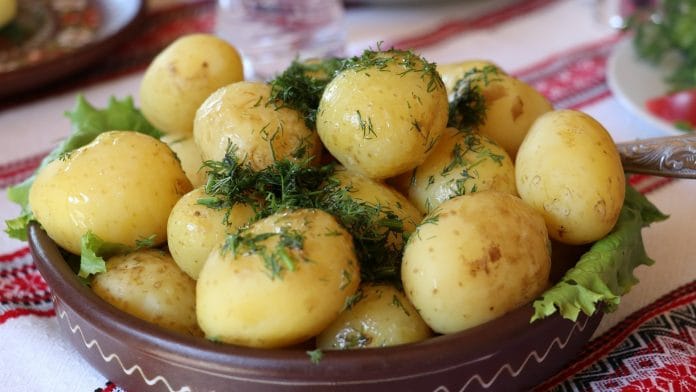Bengaluru: With the rise of low-carb diets and their increasingly evident health benefits, the staple potato — a carbohydrate-rich vegetable — has become contentious, especially when it comes to diabetes. Literature has indicated that it could be detrimental to good health and increase the likelihood of developing type 2 diabetes.
However, new research from Australia and Denmark has shown that this might not be completely true.
The researchers analysed existing studies on the impact of diet on the risk of diabetes, and discovered that people who consumed more vegetables were at a lowered risk of developing type 2 diabetes.
For potatoes, the team found that when they separated boiled potatoes from mashed potatoes (dish), fries, and chips, there was no longer an association with raised risk of diabetes. It also found that those who ate the most potatoes, in various forms, also consumed more butter, red meat, and sugary drinks — all of which raise the risk of diabetes.
The findings reaffirm that vegetables play a crucial role in reducing the risk of type 2 diabetes, and that those who ate more greens and crucifers like cauliflower and broccoli, had a statistically significant lower risk of developing the disease.
“The findings support current dietary recommendations encouraging the increased consumption of vegetables other than potatoes to reduce obesity and subsequent type 2 diabetes risk,” conclude the authors.
The peer-reviewed findings were published this week in the journal, Diabetes Care.
Also read: White rice linked to diabetes, especially in South Asia, says 21-nation study done over 10 yrs
Relationship between veggies and diabetes
To understand the relationship between higher intake of vegetables and potatoes, and the incidence of type 2 diabetes, the researchers analysed data from the Danish Diet, Cancer, and Health (DCH) study. This prospective study had recruited 57,053 participants in the 1990s, aged 50-64, and followed them over time in Copenhagen to understand any associations between dietary habits, lifestyle, and cancer development.
For the study, the researchers analysed the existing data of these participants over the years and their associated health data points.
The participants filled in a detailed 192-item questionnaire on food and the food groups they consumed, in 1995, before the onset of type 2 diabetes in some. The researchers noted data about vegetables excluding potatoes, total potatoes, and their preparation methods such as boiled, roasted, cooked mashed, and fried. A detailed recipe-and-portion-size calculator recorded daily intake.
The team also sorted the non-potato vegetables into multiple groups to see their consumption impact on lifestyle and disease: green leafy vegetables, cruciferous vegetables, yellow/orange/red vegetables, allium or onion and garlic-family vegetables, all other veggies, and legumes.
It also noted intake of whole and refined grains, red meat, processed meat, poultry, fish, dairy, animal fats, vegetable oils, sugar and sweets, fruit, coffee and tea, and sugary soft drinks.
Data was adjusted for age, sex, smoking habits, alcohol consumption, education level, physical activity level, and use of hormone replacement therapy. Among the participants, 4,243 men and 3,452 women went on to develop type 2 diabetes.
Dietary and health patterns
The researchers found that those who excluded potatoes, or at least its fried forms, were in general among the healthiest of the participants — they were typically women who smoked less and consumed more vegetables. They also consumed less red meat and sugar, and consumed boiled potatoes more than fries and chips.
The team found that the association between intake of vegetables and the risk of diabetes was inverse — the more veggies consumed, the less risk of developing type 2 diabetes.
Furthermore, there was a strong association between consuming green leafy and cruciferous vegetables, and lowered risk of type 2 diabetes, even when adjusted for other lifestyle factors.
Conversely, the team found that total potato intake was directly associated with incidence of type 2 diabetes, when the potatoes were consumed as fries, chips, or the common buttery mashed dish. There was a slightly weaker association between other forms of potato, except boiled, and diabetes which was reduced even more when adjusted for other foods. But boiled potatoes had no effect on the risk.
The team found that those who consumed potato in its other forms also tended to consume foods that raise diabetes risk, such as refined grains and red meat. Those who consumed more vegetables generally had a healthier diet and lifestyle as well.
Participants who consumed the most vegetables had a 21 per cent lower risk of diabetes than those who consumed the least amount of vegetables in the study.
(Edited by Nida Fatima Siddiqui)
Also Read: Should you fall for anything labelled ‘diet’? Think again on diet soda






